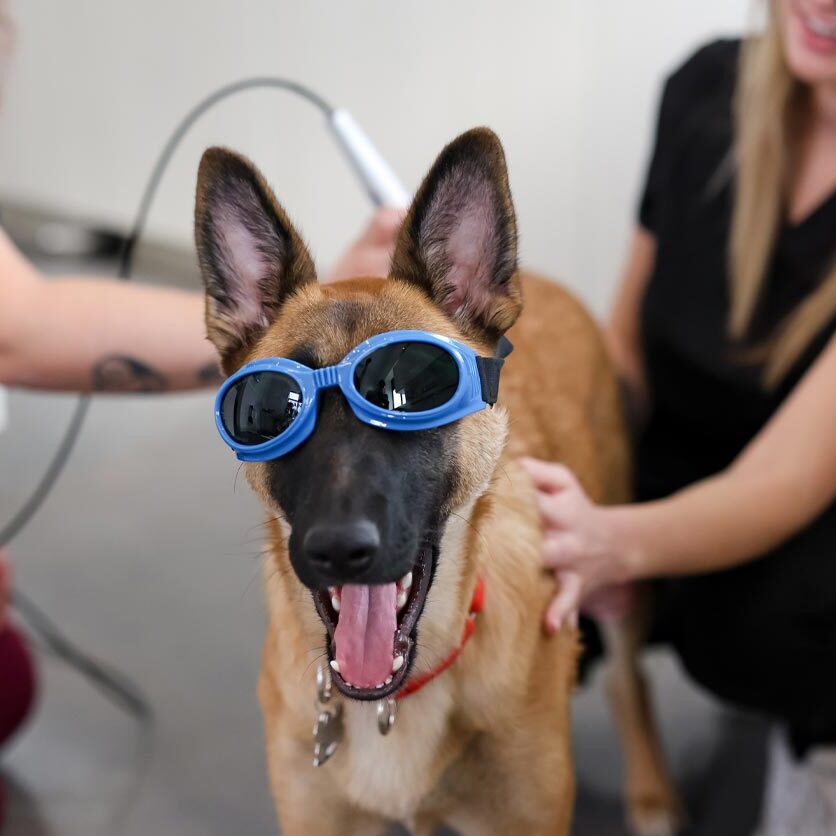
Delivering Pain Relief with Laser Therapy for Dogs and Cats in Hinsdale, IL
Relieving pain and accelerating healing in your pet can be a gentle, soothing process, thanks to laser therapy! This non-invasive, drug-free technique uses photons (light particles) to repair damaged tissues and increase your pet’s comfort. We are extremely happy to provide laser therapy for dogs and cats here at Lane Veterinary, because it is a low-stress, hands-off treatment with no harmful side effects. Proven to work well in humans, our lovable four-legged family members can now enjoy the benefits of laser therapy, too.
Does your pet have an acute or chronic condition that’s causing them daily pain? Get in touch with us by calling (630) 320-6644, or request an appointment online.
How Can Light Particles Treat My Pet?
Laser therapy uses light particles to treat dogs and cats—no medications or needles required. The light particles are emitted from a handheld device, which is carefully moved over the treatment area without making direct contact. The light particles penetrate deep into the skin and muscle tissue, where they are absorbed and metabolized by the tissue cells. These cells become increasingly active, which speeds up the healing process.
Photobiomodulation is the official name for what takes place when the photons interact with the body’s cells. All of this occurs without any stress or discomfort to your pet.
What are the Beneficial Effects of Laser Therapy for Dogs and Cats?
There are several major benefits we hope to achieve by treating your pet with our therapeutic laser.
These include:
- A noticeable decrease in pain for your pet
- Decreased inflammation of the soft tissue/joints
- Increased healing of damaged tissues
- Improved blood circulation
- Increased energy and activity

Types of Conditions We Can Treat with Our Therapeutic Laser
Our therapy laser is a versatile tool, benefiting our patients in countless medical situations. Some of the conditions we can treat with the laser include:
- Osteoarthritis
- Ear infections
- Lick granulomas
- Lacerations
- Bite injuries
- Burns
- Skin infections
- Post-surgical incision sites
- Stomatitis
- Gingivitis
- Ligament injuries
- Muscle injuries
- Degenerative myelopathy

